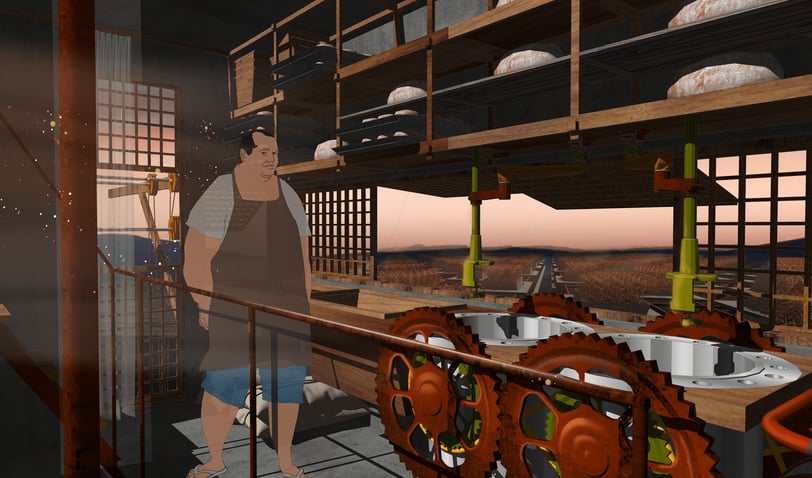



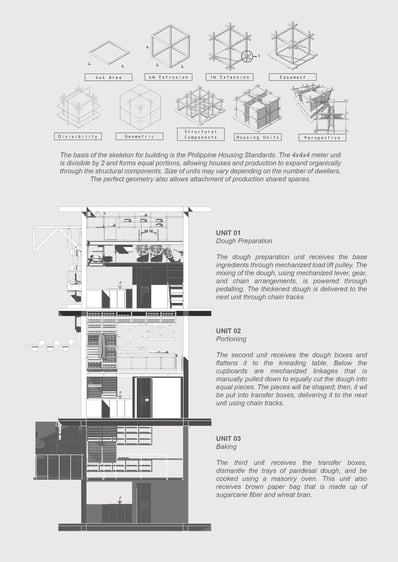
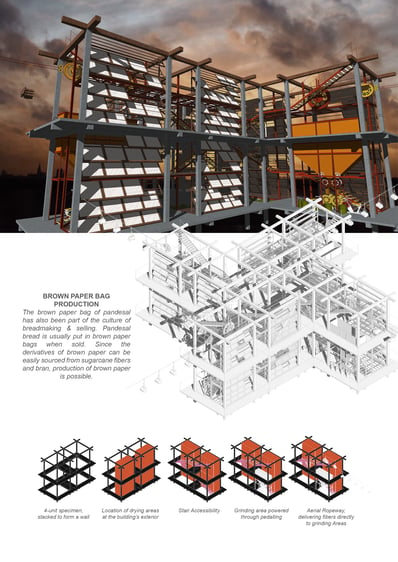
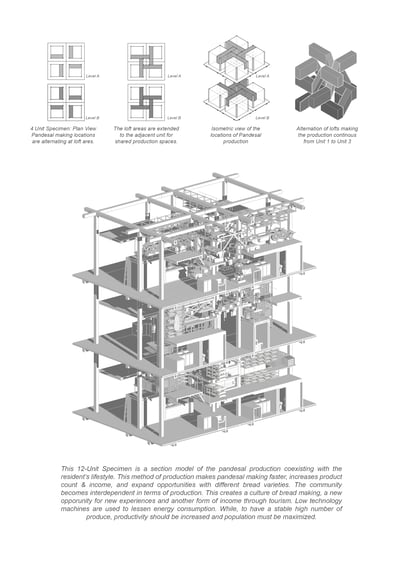
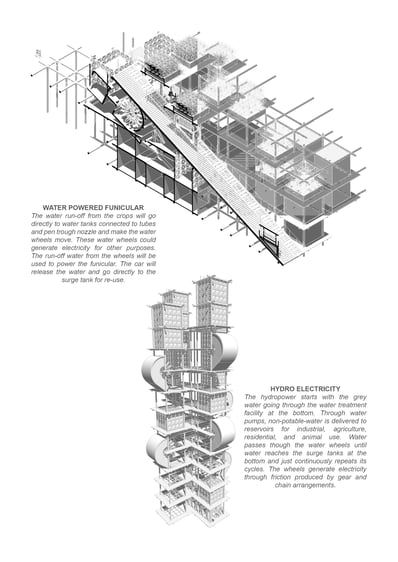
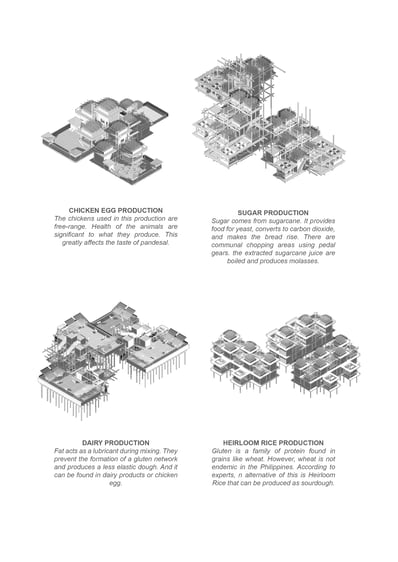
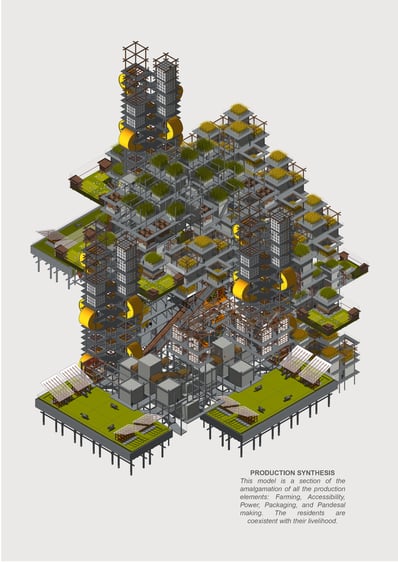






Kinetic Panaderia
An Exploration on the Mechanization of Pandesal Production and Community Housing
In the 2019 Global Food Security Index, The Philippines ranked 14th out of the 23 countries in Asia and Pacific, with a score of 51.4 out of 100, an increase of 2.5 points from its previous year, 2018. However, The Philippines is still below average among all other Asia & Pacific countries in the 3 dimensions of Food Security: Affordability, Availability, and Utilization.
In recent years, the country’s economy has made strides in achieving inclusive growth. In contrast, the impact of COVID-19 has stalled this upward trend, with negative implications on income, food supply, and crime. It has been pushing more people below their economic status because of their diminishing purchasing power and continuously increasing prices of basic needs: food & shelter.
This research is an exploration of the Mechanization of Pan desal Production and Community Housing through the Theory of Machines. It is a reimagination of a Filipino Housing Community that is self-sufficient in making Pan desal from its own manufactured derivatives. With the Theory of Machines, the entire system of production, from the raw materials to the pan desal, becomes interdependent.
In the hopes of mitigating the risks of scarcity in our communities, Kinetic Panaderia creates an imaginative and innovative framework in addressing the limitations of food and shelter. This project is a response to the changing world order and the urban landscape of The Philippines and other countries in Southeast Asia.
Jaffar A Kutty
De La Salle - College of Saint Benilde

